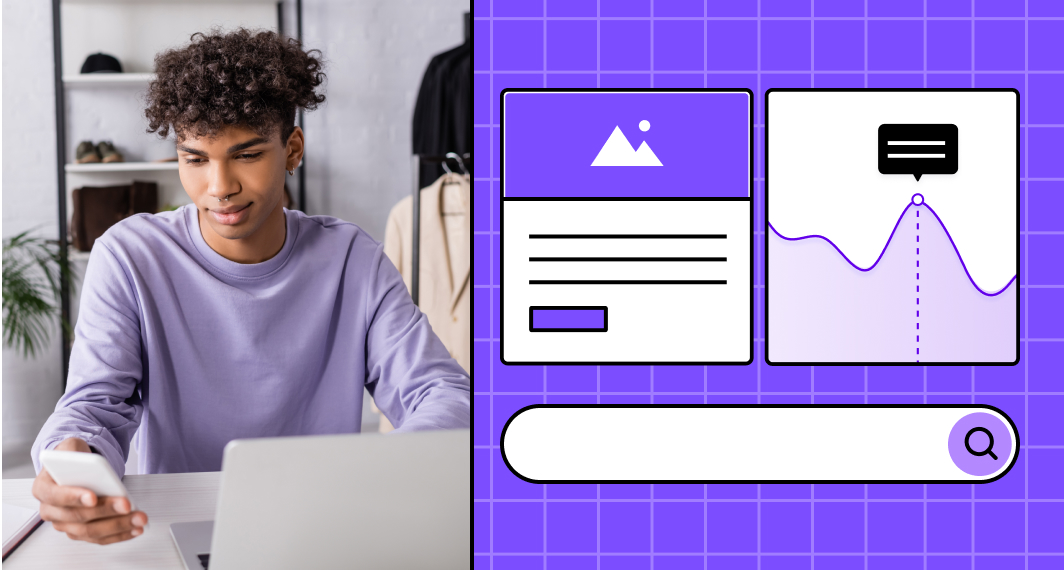What is an enterprise app?
Enterprise apps are a type of specialised software designed to cater to the specific needs of a business. They often focus on streamlining internal processes, while improving efficiency and collaboration on a large scale. Features such as data management, workflow automation and secure communication are key tenets of enterprise apps.
Benefits of enterprise apps
Enterprise application software offers a range of benefits for both businesses and employees. Let’s dive into each of these benefits 👇
Benefits for the organisation
1 - Enhanced productivity
Streamlined workflows and automated processes within enterprise apps reduce manual tasks, leading to increased productivity and operational efficiency.
2 - Data centralisation and accessibility
Enterprise apps often centralise data storage, making it easily accessible to authorised personnel. This ensures a single source of truth and facilitates informed decision making.
3 - Cost reduction
Automation of routine tasks, improved efficiency and streamlined processes can lead to cost savings over time, optimising enterprise resource utilisation.
Benefits for the employees
1 - Remote accessibility
Enterprise apps often provide remote access to essential tools and information, allowing employees to work from anywhere. This flexibility is particularly valuable in today's dynamic work environment.
2 - Real-time updates
Employees can stay informed about updates and important announcements through real-time notifications within enterprise apps, promoting transparency and keeping everyone on the same page.
3 - Improved communication
Collaboration features enable real-time communication among employees, fostering better teamwork and information sharing. This can enhance decision-making processes and responsiveness.
How do enterprise apps differ from consumer apps?
Enterprise apps and consumer apps differ in several aspects. Here are some of the key differentiating factors 👇
1 - Target audience
Enterprise apps are tailored for organisations with thousands of employees and help in specific areas like onboarding, customer service, data management and more.
On the other hand, consumer apps are geared towards individual users and target a broader audience, focusing on productivity, lifestyle or entertainment.
2 - User interface
Enterprise apps have a more utilitarian design and prioritise functionality. The UI is tailored to meet business needs and doesn’t focus on aesthetics. They require intuitive navigation that reduces bottlenecks and increases efficiency.
By contrast, consumer apps place a strong focus on seamless user experience and aesthetics. For the success of these apps, they should have engaging designs and convenience features that keep customers coming back.
3 - Integrations
For enterprise apps, integration with enterprise systems is very important so that they can work seamlessly within the organisation.
Every enterprise needs various systems to work. For instance, an ecommerce business requires ERP systems, warehousing and inventory management systems, order management systems and logistics management systems. Integrations bridge the gap between these systems and the enterprise app to streamline the process.
This is why enterprise apps are more customisable and can adapt to specific business functions.
In consumer apps, integration capabilities are not as prominent unless there’s a need for linking them to external services.
4 - Security
Enterprise apps prioritise robust security features to protect sensitive business data. Enterprise apps often have encryption, access controls and authentication mechanisms to ensure a secure environment.
While consumer apps are also secured, enterprise apps require different levels of security.
5 - Deployment
Deployment of enterprise apps may involve complex setups, considering the need for compatibility with existing enterprise infrastructure, whereas consumer apps are typically deployed through app stores.
Conclusion
With an array of benefits, there’s no arguing that enterprise apps play a crucial role in modern business operations, fostering a more efficient and collaborative workplace.
To build an enterprise app, you need to have a clear strategy, a development plan and an internal team that can build it for you. However, internal teams often delay the app projects as they already have too much on the table.
The easier and more cost-effective solution is to onboard a third party like Builder.ai to bypass your developers.
Builder.ai is a top-rated enterprise-grade applications developer that helps you get critical enterprise software solutions delivered fast.
With Builder.ai you can:
- Optimise your workflows with scalable custom apps
- Get enterprise-grade integrations, security and scalability
- Access 24/7 support and proactive maintenance
- Lighten the load on your internal development teams
Ready to build your enterprise app? Hit the banner below 👇
Get a free app prototype now!
Bring your software to life in under 10 mins. Zero commitments.


 Facebook
Facebook X
X LinkedIn
LinkedIn YouTube
YouTube Instagram
Instagram RSS
RSS


